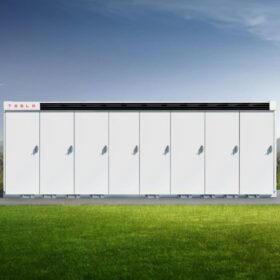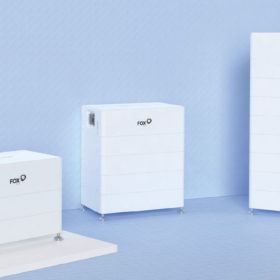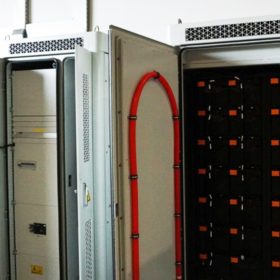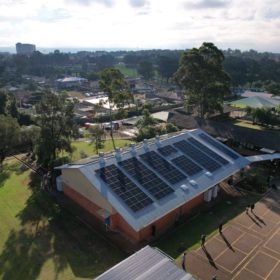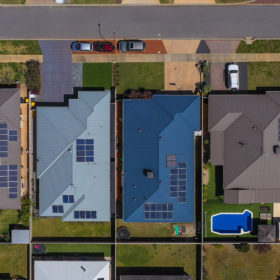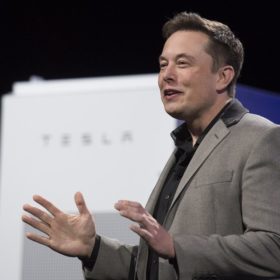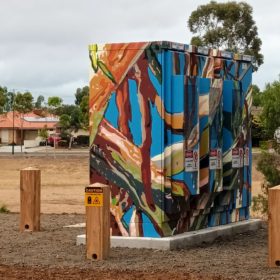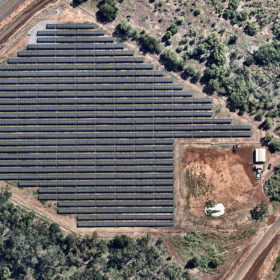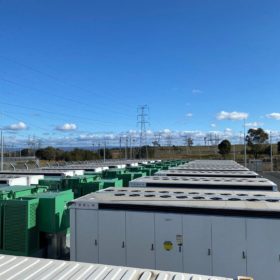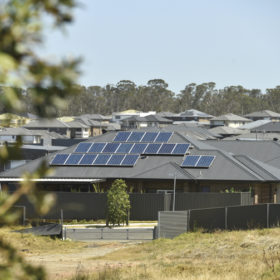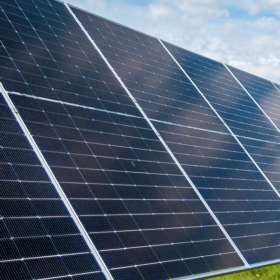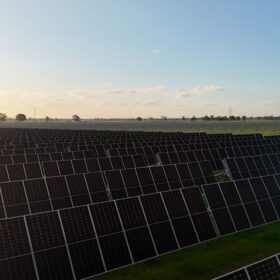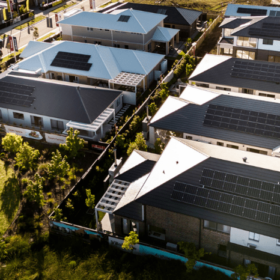Tesla’s Investor Day: Ramping up the Megapack business
The electric vehicle and storage manufacturer shared insight into its Megapack energy storage business and the Megapack XL, the stationary battery storage product that Tesla says has the highest energy density on the market.
Weekend read: Dawn of the store-age
Last year was another landmark 12 months for energy storage, with all indicators pointing to a massive surge in demand. Supply chain instability and inflation saw battery prices rise, but the industry demonstrated an ability to swiftly react to geopolitical developments. Marija Maisch examines five trends driving the market.
Shell Energy delivers battery-backed renewables solution for NSW
The Australian renewables and energy solutions arm of global energy Shell is finalising the installation of a solar-powered virtual power plant featuring battery energy storage systems deployed across 16 New South Wales government buildings.
NSW welcomes a fresh cohort of solar schools
A new cohort of 18 New South Wales (NSW) public schools will receive solar and battery energy storage systems in the latest round of the NSW government’s Smart Energy Schools Pilot Project.
SwitchDin plots DER testing lab to help tackle clean energy transition
Australian energy management software company SwitchDin has announced it will build the Southern Hemisphere’s largest lab dedicated to researching and testing distributed energy resources at its headquarters in the New South Wales Hunter region.
Tesla slashes Powerwall price
After consistently raising the price of its Powerwall home battery system since 2018, Tesla has finally dropped its recommended retail price to $14,599 (USD 9,818), a substantial $1,631 reduction.
Powercor supports more rooftop solar with new neighbourhood battery
The solar ambitions of residents in the western Melbourne suburb of Tarneit are now underpinned by a neighbourhood battery. Victorian network service provider Powercor connected the 120 kW/360 kWh energy storage system to its network to make the most of the strong rooftop PV penetration in the area.
Australia’s military turns to solar and storage to deliver energy security
A combined 60 MW of solar and 25 MWh of energy storage will be deployed at military sites across Australia as part of a government strategy to increase energy independence and security at the country’s Department of Defence facilities.
NSW Labor promises $1 billion for new state-owned energy corp
The New South Wales Labor Party plans to tip in $1 billion (USD 690 million) to create a state-owned energy corporation which will partner with the private sector to accelerate investment in pumped hydro, community batteries and renewables to support the state’s energy transition.
NSW to electrify entire communities in $8 million pilot program
The New South Wales government has announced an $8 million (USD 5.5 million) pilot program which will support the entire electrification of three communities across the state. It is anticipated the initiative will include the deployment of solar, batteries and local electric vehicle charging infrastructure.
